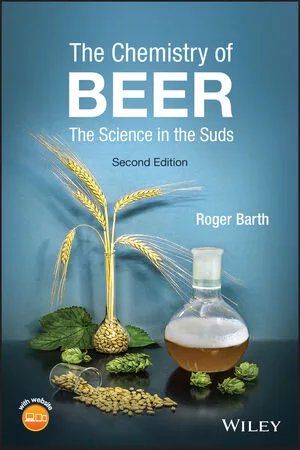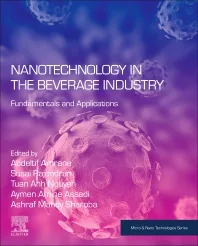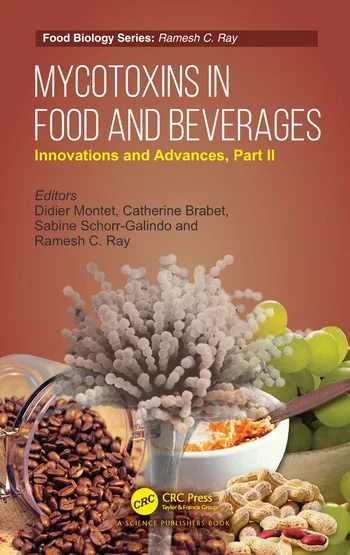Ingredient Spotlight
Plant-based extracts fill the need for health, functionality amid pandemic
Stress management fueling increased demand for adaptogens

Ginger is a popular botanical ingredient that delivers multiple health benefits.
(Image courtesy of Kerry)
The numbers don’t lie — botanical ingredients are gaining favor in the food and beverage market. Between 2017 and 2020, beverages containing botanical extracts increased 46%, says Coralie Garcia-Perrin, global strategic marketing director of sweet and dairy taste for Kerry Taste & Nutrition, Beloit, Wis. Additionally, more than 97% of consumers who were surveyed around the world said botanical ingredients and flavors appeal to them, according to a 2021 global consumer research study titled “Botanical State of Mind: Uncovering consumers’ personal and emotional relationship with botanicals,” conducted by Kerry. The study surveyed more than 6,500 consumers across 12 countries in North America, Europe, Latin America, Asia Pacific and Africa.
Interest in botanicals is on the rise for various reasons, including consumer demand for natural, healthy, functional ingredients, experts note. This demand has been boosted by the COVID-19 pandemic, leading many consumers to seek out healthy foods and beverages, Garcia-Perrin suggests.

Image courtesy of LVMH
Botanicals fit the bill, as many consumers view them as healthy ingredients, notes June Lin, global vice president of marketing for health and wellness at ADM, Chicago.
“Botanical ingredients have a perceived health halo that consumers are drawn to as they seek proactive solutions for natural energy, calm, mental and physical performance, immune health, and other benefits,” she explains.
In fact, 44% of global consumers are choosing functional foods and beverages more frequently because of the pandemic, Lin says, citing FMCG Gurus research.
“Beverages provide a convenient, versatile format for functional botanicals, from caffeinated water to tea to sports drinks,” Lin notes. “In addition to perceived wellness benefits, botanicals have the added appeal of being sourced from nature. Close-to-nature ingredients are associated with consumer interest in clean labels, plant-based ingredients and more sustainable offerings.”
Kerry’s report adds that in February, 70% of global consumers said they will be more attentive to the naturalness of ingredients because of COVID-19, Garcia-Perrin says, citing FMCG Gurus research. By comparison, only 46% of consumers felt that way in April 2020.
Furthermore, Kerry’s report found that 91% of global consumers said that health impact or nutrition is a very important attribute for botanicals.
The health aspect, functionality and naturalness of botanicals make them a triple threat in the beverage industry.
Functional botanicals
In the botanicals market, there’s no shortage of functional properties that can support beverage-makers formulation needs. Currently, immune support is one of the most popular functions, likely thanks to the COVID-19 pandemic. According to FMCG Gurus research, 65% of global consumers are more conscious about their immunity because of COVID-19, Lin notes. As a result, consumers are turning to ingredients like acerola for its association with vitamin C and immune support, she says.
Kerry’s Garcia-Perrin adds that more than 53% of global consumers are looking for products with botanicals to improve their health. Digestive/gut health and immune support are the two most in-demand health benefits, she notes. In response, beverage-makers can turn to botanicals such as honey, mint, ginger and cinnamon to satisfy these consumer requests.
“Honey, ginger and mint are believed to support multiple health goals and, therefore, have superfood status in the minds of consumers,” she says.
They’re also among the Top 5 most appealing botanical flavors in the world, according to Kerry’s “Botanical State of Mind” report. The report states that mint is the most appealing flavor and most widely recognized botanical ingredient. The remaining four top botanical flavors are honey, coconut, cinnamon and ginger, Garcia-Perrin says. Raspberry, green tea, passionfruit, basil and blueberry round out the Top 10, she notes.
For consumers looking to reduce stress, adaptogens are a popular option as well.
“Adaptogens are linked to consumers’ perceptions of stress management and need for more peace and relaxation in their lives,” Kerry’s Garcia-Perrin explains. “The most common adaptogens are flower-based, such as lavender, cherry blossom, jasmine and chamomile.”
On the other hand, consumers seeking a mood boost or sustained energy can turn to guarana and green yerba mate for a boost of caffeine, ADM’s Lin notes. For a caffeine-free option, beverage-makers might want to consider maca. Even though it’s caffeine free, the botanical is said to support energy levels and overall well-being, she says.
Botanicals featuring antioxidants offer other functional options for beverage-makers. For instance, turmeric is a popular botanical known for its bright yellow color and its primary bioactive ingredient, curcumin, Lin explains.
“Curcumin is perceived by purchasers to have antioxidant and inflammation-modulating properties,” she says.
Edible flowers like hibiscus and elderflower also contain antioxidants and pair well with flavors like lemon, orange and mint, Lin notes.
Finally, beta carotene is a widely known botanical linked to eye health and other potential benefits because it is a dietary source of vitamin A, she says.
“Our beta carotene extract is made from carrots, pumpkins, sweet potatoes, paprika and Reishi mushrooms,” Lin explains.
Future findings
Moving forward, Kerry’s Garcia-Perrin expects to see botanical flavors combined with more traditional flavors as well as functional ingredients like vitamins and minerals.
Furthermore, the company predicts savory botanicals like basil will grow in the beverage industry. For example, a beverage-maker recently created a basil and lime carbonated soft drink, she notes.
Specifically, she says herbs and flowers such as basil, coriander, lavender and elderflower are emerging flavors for 2021, while orange blossom, hibiscus, jasmine and rose are up-and-coming flavors for beverages.
“Botanicals have a long history and heritage of usage by many cultures around the world, but recent decades and years have seen a resurgence in interest in these as emerging new sources of taste for use in foods and beverages,” Garcia-Perrin says. “The potential of botanicals around the globe has barely been scratched, and it’s clear that these have a rich future to add to developing new food and beverage product development.”
Looking for a reprint of this article?
From high-res PDFs to custom plaques, order your copy today!








